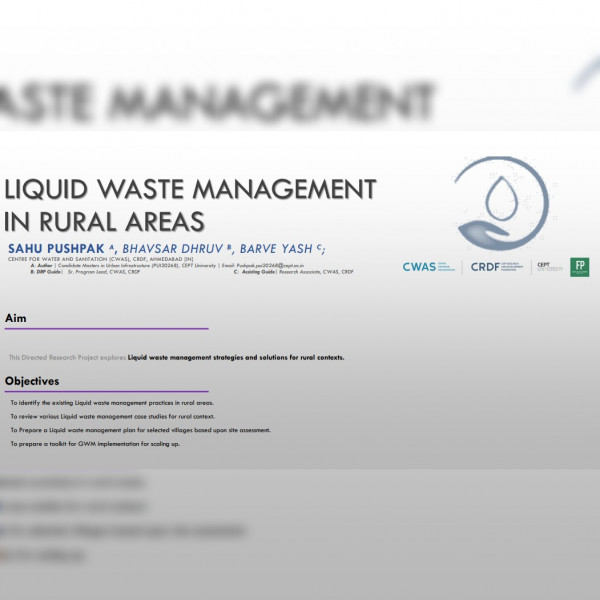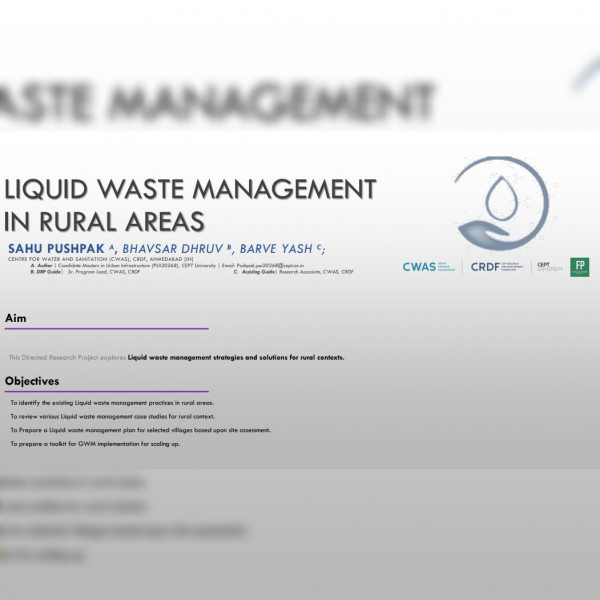Liquid Waste Management in Rural Areas (2022)
May 2022
This directed research project explores Liquid waste management In Rural areas for strategies and solutions context of Urbanizing India via sample study of State Gujarat over Gandhinagar villages. Swachh Bharat Mission Grameen 2.0 defines ODF Plus village as "A village that sustains its ODF status, ensures solid and liquid waste management, and is visually clean." In its first phase, SBM has brought villages to have open defecation-free services to proceed way ahead; it is an opportunity for the villages to develop towards completing their water loop via adequately managing their liquid waste. That means villages to have complete environmental sanitation and sustainable habitation by practicing liquid waste management and building water security by using and reusing the water with controlled water quality and managed quantum catering against the pollution within the localities at various scales as households, communities, village or clusters of diverse habitation over the network of villages based upon Liquid waste service chain to seek waste to wealth generation. This “Liquid waste management in rural areas Report” would help select the appropriate option for liquid waste in the village based on context and strategy for state-wide scaling up liquid waste management plan for rural areas. Provision of Liquid Waste Treatment and management systems would help the villages in treating the liquid waste and achieving better environmental and habitation condition This report provides a technology comparison and feasibility check for selecting liquid waste management systems. Under 15 technical parameters and financial checks for capital & operational expenditures as block costing, six scalable technologies were compared for analyzing the suitability check for sample villages and preparation of technology selection criteria for scaling up. Also, its research prepared excel toolkits for designing four suitable technologies that can calculate volumetric designs of treatment systems that could be scaled up for rural habitation. This directed report also explored implementational, operational and governance approach for further state level scaling up plans via analyzing critical challenges for achieving complete liquid waste management into all rural habitations.

